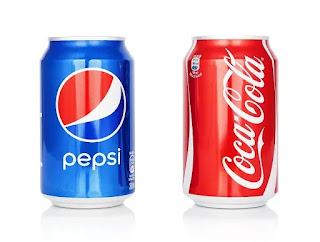Coca-Cola and PepsiCo are two of the most iconic and globally recognized beverage companies, each with a long history and a vast array of products. The rivalry between these two soda giants, often referred to as the "cola wars," has been ongoing for decades and has significantly influenced the beverage industry and consumer preferences. Let's delve into the history, products, marketing strategies, and impact of Coca-Cola and PepsiCo to understand the dynamics of this intense competition.
### Historical Background
#### Coca-Cola
Coca-Cola, founded in 1886 by Dr. John S. Pemberton in Atlanta, Georgia, is one of the oldest and most renowned soft drink brands globally. Originally sold as a medicinal tonic, Coca-Cola quickly gained popularity for its refreshing taste and became a staple beverage.
#### PepsiCo
PepsiCo, on the other hand, traces its origins to 1893 when Caleb Bradham, a pharmacist from North Carolina, created "Brad's Drink," which later became Pepsi-Cola in 1898. Like Coca-Cola, Pepsi started as a fountain drink and gradually expanded its reach.
### Product Lineup
#### Coca-Cola
Coca-Cola's flagship product is its classic cola, which is known for its secret formula and distinct flavor. Over the years, Coca-Cola has diversified its portfolio to include various beverages such as Diet Coke, Coca-Cola Zero Sugar, Sprite, Fanta, and a range of flavored waters, teas, and energy drinks. The company also owns brands like Dasani (bottled water) and Minute Maid (fruit juices).
#### PepsiCo
PepsiCo's primary product is Pepsi-Cola, which competes directly with Coca-Cola's classic cola. In addition to Pepsi, PepsiCo offers Diet Pepsi, Pepsi Max, and Pepsi Zero Sugar. PepsiCo's product lineup extends beyond sodas to include brands like Mountain Dew, Gatorade (sports drinks), Tropicana (fruit juices), Lipton (ready-to-drink teas), and Aquafina (bottled water).
### Marketing Strategies
#### Coca-Cola
Coca-Cola's marketing has always focused on creating emotional connections with consumers. The company is known for its iconic advertising campaigns, such as the "Share a Coke" campaign where bottles featured people's names, encouraging social sharing and personalization. Coca-Cola also sponsors major events like the Olympics and partners with celebrities to promote its brand.
#### PepsiCo
PepsiCo, on the other hand, has positioned itself as the choice of the younger generation. The company has a history of celebrity endorsements, starting with the famous Pepsi commercials featuring Michael Jackson in the 1980s. Pepsi's marketing often emphasizes youthfulness, pop culture, and excitement, appealing to a dynamic and diverse audience.
### Global Presence and Market Share
Both Coca-Cola and PepsiCo have a significant global presence, with operations in numerous countries and a wide distribution network. In terms of market share, Coca-Cola has traditionally held a slightly larger share of the global carbonated soft drinks market compared to PepsiCo. However, the competition varies by region, with Pepsi being stronger in some markets like North America while Coca-Cola dominates in others like Europe and Asia.
### Innovation and Sustainability
In recent years, both companies have focused on innovation and sustainability to meet changing consumer preferences and environmental concerns. Coca-Cola has introduced plant-based drinks, reduced sugar content in its beverages, and invested in eco-friendly packaging initiatives. PepsiCo has also made strides in sustainability, launching products like Pepsi True (sweetened with stevia), investing in recycling programs, and committing to reduce its environmental impact.
### Impact on the Beverage Industry
The rivalry between Coca-Cola and PepsiCo has driven innovation, marketing creativity, and competitive pricing in the beverage industry. Their intense competition has also led to numerous legal battles and advertising duels, shaping the advertising landscape and consumer perceptions.
### Conclusion
The competition between Coca-Cola and PepsiCo is a classic example of corporate rivalry and marketing prowess. While their core products (cola beverages) remain the focal point, both companies have diversified their portfolios, embraced innovation, and adapted to changing consumer preferences. The "cola wars" continue to evolve as these beverage giants navigate new challenges, including health concerns, sustainability demands, and digital marketing trends. Ultimately, consumers benefit from this rivalry through a wide range of beverage choices and ongoing product improvements.

